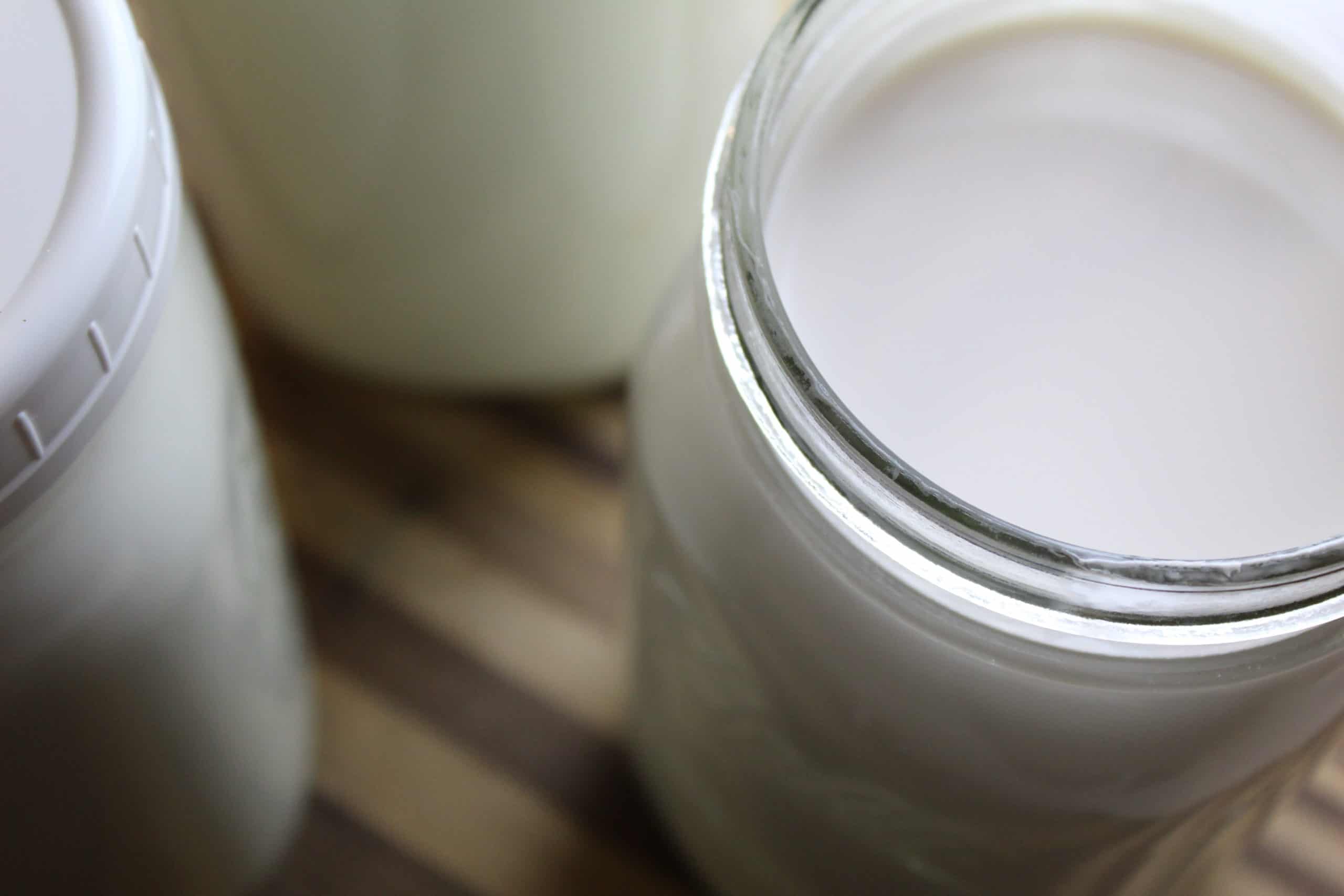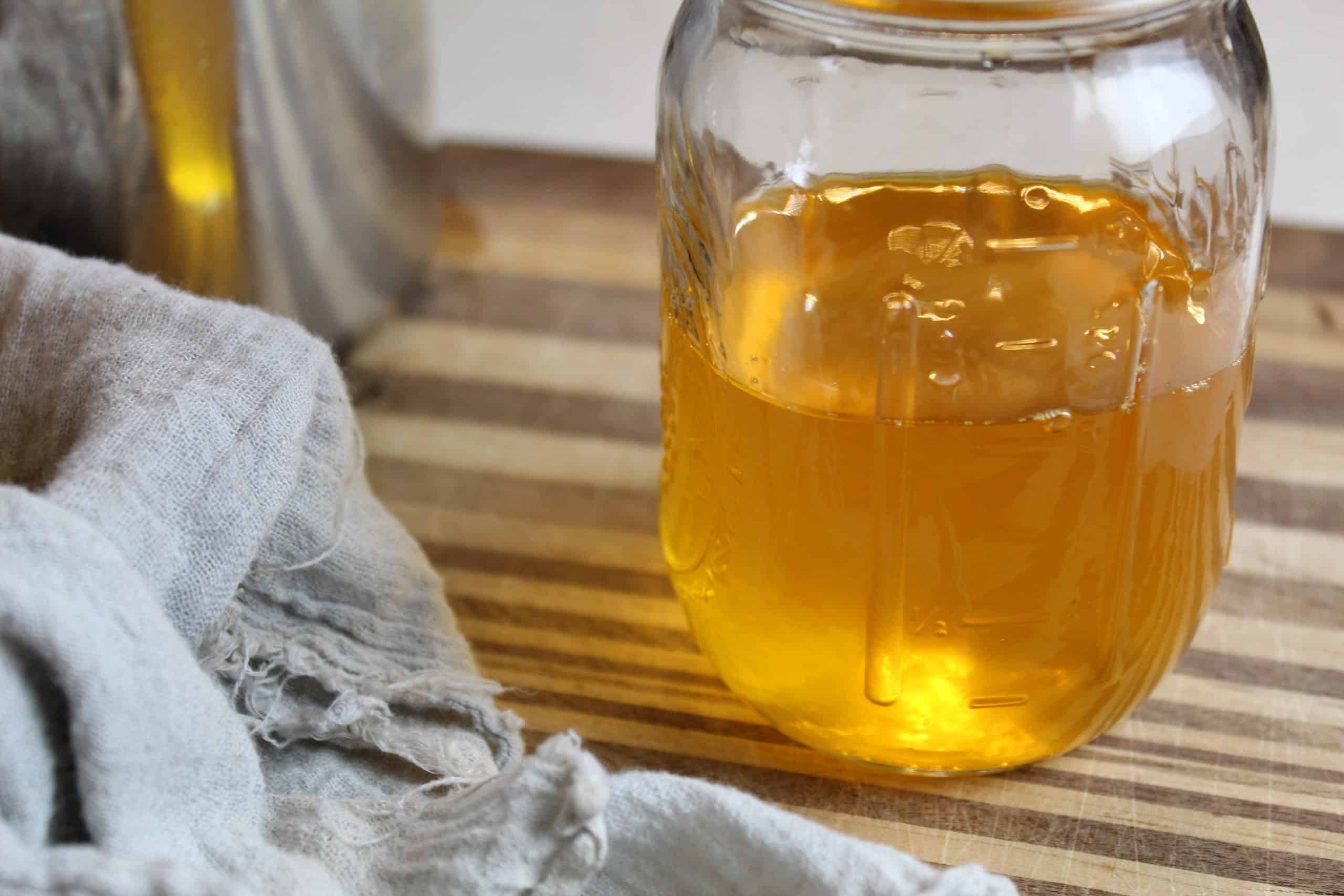Salt Preserved Herbs
A great way to keep those fresh herbs from the garden is by preserving them in salt. It’s easy and smells amazing. Let’s dive in!

This post contains affiliate links, which means I make a small commission at no extra cost to you. See my full disclosure here.
What are salt-preserved herbs?
Very simply, salt-preserved herbs are any combination of herbs that have been chopped up with sea salt and stored in a cool place for later use.
As the salt and herbs blend together you end up with a deliciously fragrant herbal salt.
Dried herbs maintain good flavor, but salt-preserved herbs keep that fresh from the garden aroma.
Salt as a Preservative
Salt has been used as a preservative of food for thousands of years, with the earliest records of this dating back to 2000 BCE. It was most commonly used in the preservation of meats. As society shifted from hunting regularly to spending more time with agriculture, meats had to be preserved for longer periods of time between hunts. Refrigeration wasn’t a thing in ancient times or heck in even modern history. Salt was turned into a brine, which then preserved meats for later consumption.
What herbs can I preserve in salt?
Unfortunately, not all garden herbs will be preserved well with this method. Leafy herbs like fresh basil or mint will work, but the shelf life on them will be much shorter. There is too much moisture in the leaves for them to be safely preserved in the salt for extended periods.
Smaller-leafed herbs are a safer and better option. Here are a few:
- Dwarf Savory
- Thyme
- Oregano
- Parsley
- Rosemary
- Chives
- Dill
- Caraway
- Green Onions

The Best Salt for Preserving Herb
Please use a non-iodized salt for this recipe. Do not use regular table salt from your salt shaker. Iodized salts have anti-caking agents in them. This can cause discoloration, spotting, and general funky-ness in your herbal salt. Iodized salt is also lower in sodium, which is the active element in salt that pulls out moisture and prevents negative bacteria from growing.
Himalayan pink salt may also be used, but it isn’t my first choice. I prefer the green of the herbs to really shine through a white salt. I’ve also found Himalayan salt to be a fairly fine salt, and you want a chunkier salt for this recipe.
Kosher salt will work just fine for this recipe. Canning salt is another option as well.
For best results use a flaked sea salt. Sea salts have a high sodium content for preservation, excellent flavor, and they just look beautiful. For the recipe pictured, I used Maldon Salt flakes. This is a beautiful salt to have around your kitchen in general or for DIY bath salts.
Ingredients & Supplies for Herb-Infused Salts
You will need to gather a few basic items for this recipe.
- 15-20 stems of appropriate herbs
- 2/3 Cup Sea Salt or Kosher Salt
- Cutting Board
- Baking Sheet and/or kitchen towel
- Chopping Knife
- Mason Jar with Lid
How to Make Salt Preserved Herbs
Begin by collecting fresh herbs from the garden or purchase them from the grocery store. You will need 15-20 stems of herbs to make one half-pint jar of fresh herb salt. You can use any combination of your favorite herbs as listed above.
Wash the herbs thoroughly and allow them to dry overnight, or 12-24 hours. Spread them in a single layer on a towel or cookie sheet lined with parchment paper. We want to reduce the amount of moisture content in the herbs while keeping their fresh flavor. The leafier ones should look just a little wilted.
The next day, destem all the leaves and pile them up on a cutting board.
Roughly chop all the herbs.

Next, pour a layer of salt over top of the chopped herbs. Begin to roughly chop the herbs and salt together. Add more salt until you have used it all up. Continue to chop, then scoop the herbs/salt from the bottom to the top until you have a homogenous mixture.
Your salt is ready to store!
Now listen, I have photos here of my herb-flavored salt stored in a very cute cork top container. While this looks beautiful for the blog or as a way to give a gift, it is not what I would store these in long term. Store these in an airtight jar like a mason jar. I recommend clean glass jars because they look beautiful and there is little risk of contamination. Plus, herbed salt is very fragrant. If stored in plastic you run the risk of having a container that smells like those herbs for the rest of its life.

Ideas for Using Salted Herb
There are many different ways to put your salted herbs to use!
The aromatic herbs in the salt make it a delicious base for salad dressings when added to olive oil.
Scoop the salt straight out of the jar and use it as a rub for chicken, steak, etc. The salt and herbs especially come alive when you use them on grilled meats.
Another wonderful way to use the salt is using it as a base for marinades.
Sprinkle the salt on top of dishes as a delicious finishing salt.
Lastly, as an added bonus, homemade herb salt makes a perfect gift around the holiday season.
How long do salted herbs last?
Salted herbs have a shelf life of a year if kept in a refrigerator or very cool root cellar. While they CAN be kept on a countertop, it is not what I recommend. They would stay good for a few weeks, but even with all the salt, it is much safer and likely to taste better if you keep them very cool.

More Food Preservation
I love preserving food in all sorts of ways. Fermentation, pickling, dehydrating, you name it! I am also a certified Food Preservation Consultant through the University of Minnesota. Here are some of my other favorite preserves.
One Jar Pickled Jalapenos – Sometimes you just have a handful of extra jalapenos from the garden you need to use up. This quick pickle recipe yields one small jar.
Saurkraut– All the basic steps you need to make crunchy, delicious, kraut every time.
Milk Kefir– Super simple fermentation project that will work with any kind of animal milk.
Aronia Berry Syrup– Did you know there is another berry even more powerful with anti-oxidants than elderberries? Meet the lovely Aronia!
Watch and Learn
If you’d like to see the process of salt-preserving culinary herbs, check out the YouTube video below! Follow along step by step from harvesting, washing, drying, and finally preserving in beautiful Maldon salt flakes.
Pin it for Later









I’m totally doing this my herb garden was nuts this year.